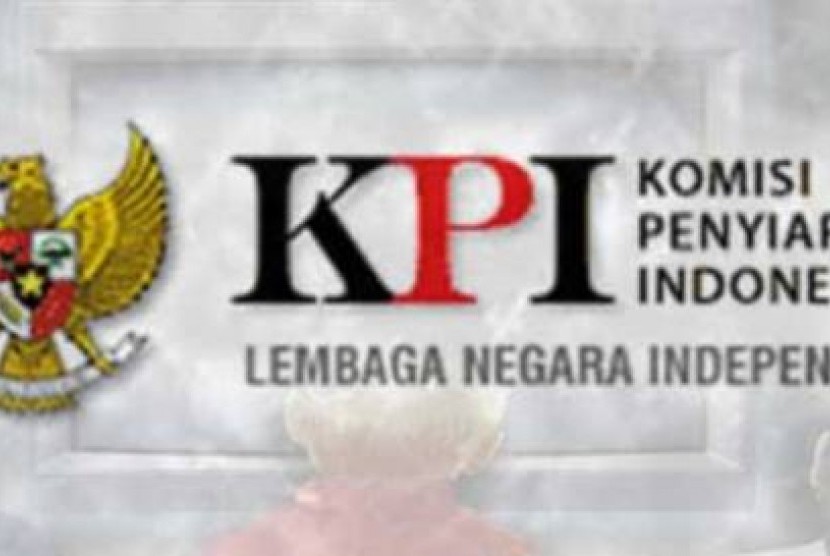REPUBLIKA.CO.ID, JAKARTA -- Four months before the start of Indonesia's general elections in 2014, covert campaigns to promote the election candidates have appeared in broadcasting media and billboards, which have forced the Indonesian Broadcasting Commission (KPI) and the Election Supervisory Board (Bawaslu) to reprimand TV news stations.
At least six TV stations are believed to have broadcast programs containing subtle campaign messages by legislative candidates or political parties that plan to contest the general elections on April 9, 2014.
The KPI has reprimanded the TV stations for their disproportionate coverage of political news, talk-shows and advertisements.
"The six broadcasting stations reprimanded by the commission are RCTI, MNC TV, Global TV, ANTV, TV One and Metro TV," KPI chairman Judhariksawan told the media here on Thursday.
Judhariksawan said the KPI had reprimanded the six television stations and urged them to change their broadcasting coverage, since campaigning for the upcoming general elections could not be carried out before March 16, 2014.
"We are of the view that several broadcasters have given disproportionate coverage to political news, including advertisements containing political messages, which, according to the KPI, contain elements of campaigning," the KPI chairman noted.
Bawaslu has also reprimanded three national TV stations -- the MNC Group, Metro TV and TV One -- because they are believed to have engaged in covert political campaigns through their programs.
"We find that there are potential violations of election campaign rules. We remind the MNC Group, Metro TV and TV One that they should not broadcast programs that could violate the rules," Bawaslu chairman Muhammad had said earlier.
According to Ari Junaedi, a political communications expert at the University of Indonesia, covert campaigns are pervasive in the electronic media because most political leaders and election candidates believe broadcast media are among the most effective means to garner public support.
"Now, rogue election candidates have begun to emerge. They are trying to promote their campaigns earlier than scheduled. That is unfair. Therefore, the General Elections Commission (KPU) must impose sanctions against those engaging in covert campaigns," Ari had said last week.
According to election campaign regulations, campaign activities using media publications and TV stations are not permitted right now.
Election campaigns can use media, such as publications and TV stations, and organize rallies only between March 16 and April 5 next year. The legislative elections are scheduled to be held on April 9, while the presidential poll is scheduled for July 9.
According to KPU rules election candidates can begin placing advertisements in the mass media 21 days before elections are held.
Ari pointed out that many candidates possibly believed that appearing on a TV program could be considered as part of a strategy to socialize with the public, although it violated election campaign rules.
According to Judhariksawan, the KPI has noticed that the violations committed differed for each TV station. "In some cases, the political coverage is not disproportionate, but is dominated by information from a particular group or affiliated groups, political party advertisements or financed by election candidates," he added.
Judhariksawan said the KPI's reprimand of the six TV stations constituted an administrative sanction. "If the KPU and the election supervisory agency issue sanctions, they will be directed at the political parties or the nominees of the Regional Representative Council, not the broadcasting institutions (TV stations)," he added.
Bawaslu chairman Muhammad noted that the alleged covert campaigns were carried out in the form of ads that included on-screen images of political party chairmen. Rules were also violated when ceremonies that included prominent political leaders were televised.
"There are many TV programs that feature political party leaders," he added.
He noted that although political party leaders denied carrying out covert campaigns through their appearances on TV programs, Bawaslu believes that their TV appearances constituted clear violations, especially because several of those leaders are major stakeholders in these TV stations.
Covert campaigns are also reflected on billboard advertising. Muhammad said that many election candidates conducted covert ad campaigns by promoting their party's colors on billboards. "Candidates are not permitted to put their names or sequence numbers on billboards, so they are using their party's colors," he added.
The KPU has not issued any ruling on party colors, but violators could be charged with ignoring other regulations, he pointed out.
According to communications expert Ari Junaedi, the government, the KPU and Bawaslu should cooperate, both in Jakarta and the regions,to impose sanctions on candidates who violate the election rules through covert campaigns.
"The governments in Jakarta and other regions, the KPU and Bawaslu should take stern measures because candidates are not permitted to conduct campaigns right now. They should stop the campaigns and remove the campaign pictures posted in various corners of the cities and public transportation vehicles or distributed as leaflets on the sides of the roads," Ari pointed out.
He urged local governments, KPU and Bawaslu to declare that covert advertisements in public places violated election campaign regulations.
"They have to remove the pictures of legislative candidates and their banners from the streets and public transportation vehicles," he noted.
In addition, the KPU and Bawaslu should take immediate steps to prevent the cases of covert campaigning through mass media from increasing, Ari said.
"If possible, the KPU should issue a directive that bans pictures of state officials in public service advertisements," he added. (Andi Abdussalam)


